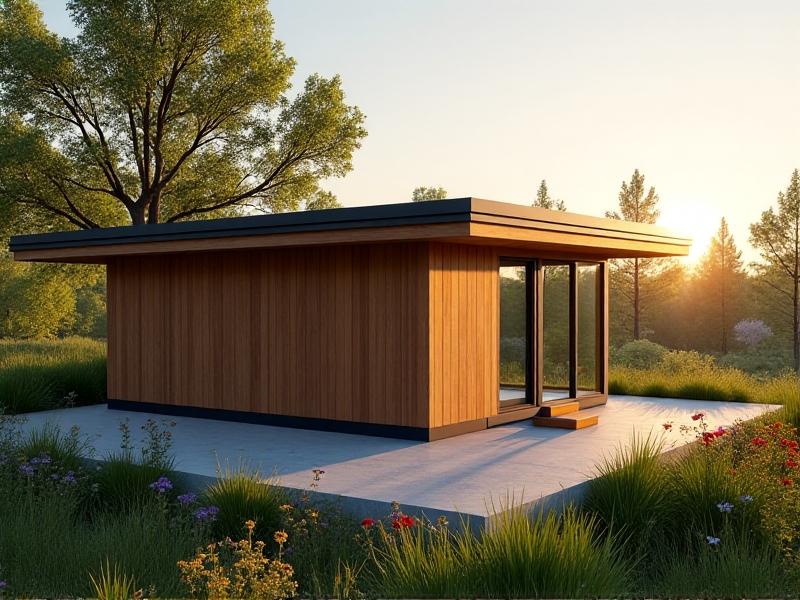Insurance Options for Mobile Dwellings
Understanding Mobile Dwellings: What Qualifies as a "Home on Wheels"?

The term "mobile dwelling" encompasses a wide range of living spaces designed for portability. From classic RVs and campervans to innovative tiny homes on wheels and converted buses, these structures blend residential comfort with mobility. What unites them is their ability to serve as primary or recreational residences while being road-worthy. Insurance providers categorize them based on factors like size, construction, and primary use—whether they’re stationary for long periods or frequently driven. Understanding these distinctions is critical, as policies vary significantly between a permanently parked tiny home and a cross-country motorhome. This flexibility in lifestyle demands equally adaptable insurance solutions.
Types of Insurance for Mobile Dwellings: Breaking Down Coverage Options

Mobile dwelling insurance isn’t one-size-fits-all. For recreational vehicles (RVs), policies often mirror auto insurance but include附加 coverage for personal belongings and living amenities. Tiny homes on wheels may require hybrid policies combining homeowners and auto elements, especially if frequently relocated. Pop-up camper owners might opt for liability-only plans due to lower asset value, while luxury motorhomes could warrant full comprehensive coverage. Specialty add-ons like "vacation liability" protect against incidents occurring at temporary campsites. Additionally, full-timers—those living in their vehicles year-round—need expanded policies similar to traditional homeowners’ insurance, covering aspects like emergency lodging if the dwelling becomes uninhabitable.
Factors Influencing Insurance Costs and Coverage Limits

Insurers evaluate risk through multiple lenses. Vehicle age and value play obvious roles, but usage patterns—such as seasonal travel versus full-time residency—are equally impactful. Geographic location affects premiums due to regional weather risks; a dwelling in hurricane-prone Florida faces different requirements than one in arid Arizona. Security enhancements like GPS trackers or reinforced locks can lower costs, while high-mileage routes may increase them. Another key factor is storage: units kept in secure facilities during off-seasons often qualify for discounts. Importantly, custom modifications (e.g., solar installations or bespoke interiors) require appraisals to ensure they’re adequately covered, as standard policies might exclude high-value upgrades.
Specialty Insurers: Navigating Providers Who Cater to Nomadic Lifestyles

Traditional insurers often lack expertise in mobile dwellings, leading many owners to niche providers. Companies like Progressive’s RV division, National General, and Good Sam specialize in policies tailored to unconventional homes. These providers offer unique perks: coverage for international travel in Mexico, emergency septic system repairs, or even pet injury protection. Peer-to-peer insurance models are also emerging, allowing owners to insure vehicles during short-term rentals. When comparing providers, prioritize those offering 24/7 claims support tailored to mobile lifestyles—whether it’s finding a repair shop in remote areas or covering expenses if a breakdown interrupts travel plans.
DIY Insurance Prep: Steps to Streamline Your Policy Application
Preparation simplifies the insurance process. Start by creating a detailed inventory of possessions inside the dwelling, with photos or videos to validate claims. Compile maintenance records—proof of regular servicing can demonstrate responsible ownership. If your dwelling is custom-built, keep blueprints and receipts for materials; insurers may require appraisals for unique builds. Before applying, audit existing policies (e.g., auto or renters’ insurance) to avoid overlaps or gaps. For example, some credit cards offer rental vehicle coverage that might apply to borrowed RVs. Lastly, practice explaining your dwelling’s specifics concisely—agents need clear details to assess risk accurately.
Legal Considerations: State Laws and Registration Requirements
Legally classifying mobile dwellings remains a gray area in many regions. Some states classify tiny homes on wheels as RVs if they’re movable, requiring annual vehicle inspections and RVIA certification. Others may treat them as park models, subject to local housing codes. Residency laws further complicate matters: certain counties prohibit full-time living in RVs outside designated parks. Registration requirements also vary—while motorhomes need standard vehicle tags, towable units might require separate trailer permits. Always consult local zoning ordinances before settling in one place long-term; even rural areas may have restrictions on off-grid dwellings.
Future Trends: How Technology is Reshaping Mobile Dwelling Insurance
Telematics devices—already common in auto insurance—are entering the mobile dwelling space. These gadgets track driving behavior and mileage, enabling usage-based premiums. Blockchain is another disruptor, offering tamper-proof documentation for custom builds and ownership history. AI-driven platforms now provide instant policy adjustments; for example, temporarily increasing coverage when traveling through high-crime areas. Sustainability incentives are also rising: insurers like Lemonade offer discounts for eco-friendly upgrades (e.g., composting toilets or renewable energy systems). As the nomadic lifestyle grows, expect more parametric insurance options that automatically pay out when predefined conditions (e.g., extreme weather) are met, reducing claim delays.






